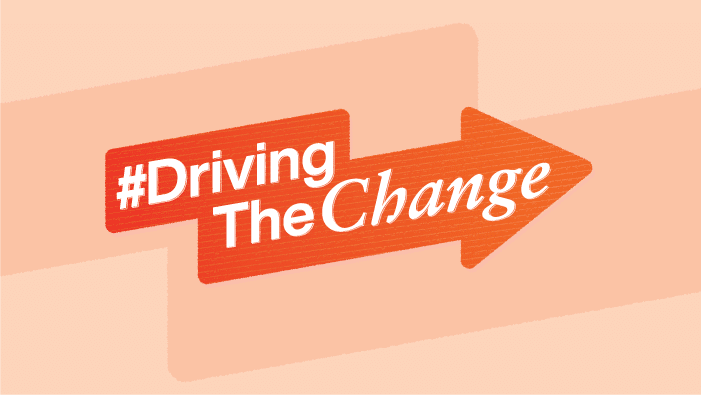Listen to this blog
Business analytics is a lucrative and in-demand career option that involves data-driven insights to inform strategic decisions within organizations. It’s ideal for individuals who possess a strong analytical mindset, enjoy problem-solving, and have a keen interest in data. Pursuing a career in business analytics can be immensely rewarding as it allows professionals to decipher complex data sets, identify trends, and provide actionable recommendations that drive business growth and efficiency.
The study of the data analytics aspect of managing a business is included in an MBA in Business Analytics program. An MBA in Business Analytics acts as a steppingstone into this field, offering a comprehensive blend of business acumen and data analytics expertise. This specialized degree equips graduates with the skills to extract valuable insights from data, making them invaluable assets to businesses across industries. Through coursework that covers data analysis, statistical modeling, and business strategy, an MBA in Business Analytics empowers individuals to launch successful careers in this dynamic and high-demand field.
What is an MBA in Business Analytics?
An MBA in Business Analytics equips students with a combination of business acumen and data analytics skills, making them valuable assets to organizations in various industries. Graduates can pursue diverse career paths and find job opportunities with top companies and consulting firms. The skills acquired are highly transferable and applicable in numerous fields beyond traditional business settings.
An overview MBA in Business Analytics
| Aspect | MBA in Business Analytics |
| Course Level | Master’s Degree (Postgraduate) |
| Duration | 2 years |
| Fee range | INR 100,000 – INR10,00,000 (varies by institution) |
| Skills gained | Data analysis, statistical modeling, data mining, programming (e.g., Python, R, SQL), data visualization, business strategy, decision-making based on data. |
| Top recruiters | Amazon, Google, Microsoft, IBM, Deloitte, Accenture, Capgemini, PwC, EY, McKinsey & Company, Financial institutions (e.g., JPMorgan Chase, Goldman Sachs). |
| Top jobs | Data Analyst, Business Analyst, Data Scientist, Data Engineer, Business Intelligence Analyst, Analytics Manager, Consultant, Risk Analyst, Market Research Analyst. |
Also read: How to get into business analytics
Why choose a career in business analytics?
For a graduate of MBA in Business Analytics, job opportunities are endless. But in addition to these possibilities, this degree also has a lot of other benefits for your job, as discussed below.
- Level up your analytical skills
Online Manipal brings to you MAHE’s MBA in Business Analytics. This program will prepare and train you with the latest and high-demand tools and skills that are useful in an organization.
Moreover, the demand for business analysts worldwide is increasing. Prestigious national and worldwide companies hire professionals with an MBA in business analytics. This offers you the option of having a career that is appealing to people worldwide and the opportunity to travel while working.
- Helping businesses launch or expand
Businesses use business analytics to better understand the market, identify risks, learn more about their customers’ buying habits and preferences, and utilize this information to improve their goods and services. Therefore, if you have received training in this area, you have the expertise to establish, reinforce, improve, and expand businesses.
- Ability to create effective strategies and solutions
The modern business market presents difficulties that call for clever responses and approaches. And working in this industry gives you the knowledge and abilities needed to create such creative plans that meet the demands of the market today. Thus, your decision to pursue an MBA in Business Analytics will help you better comprehend the opportunities and difficulties in your line of work.
- Keep a tab at the most recent market trends.
Business analytics is a field that is continually developing and seeing breakthroughs every day. Additionally, customer needs are constantly evolving. You will be better able to keep up with the most recent industry developments that enable firms to service their clients more effectively if you have an MBA in Business Analytics.
Check pout: Popular business analytics techniques
Who should choose a career in Business Analytics?
Individuals who possess the following traits and interests are well-suited for a career in business analytics:
- Analytical mindset: Those who enjoy analyzing data, drawing insights, and solving complex problems.
- Strong communication: Effective communication skills are essential to convey data-driven insights to non-technical stakeholders.
- Business acumen: An understanding of business operations and strategies to provide valuable insights.
- Tech-savvy: Comfort with data analytics tools, programming languages, and statistical methods.
Check out: Top careers in business analytics
How can I learn an MBA in Business Analytics?
An MBA in business analytics can be done in various ways. Three of which are regular, distance, and online modes of education.
- Regular mode
A typical MBA program lasts two years and is broken into four or six semesters. However, several private institutions additionally offer one-year PGDM programs. The regular MBA is widely opted among students.
- Distance mode
Candidates who apply for a distance MBA complete the program through correspondence and remote communication. The course is designed for people with little free time and money because it is economical and flexible. Depending on your preferences, the course can be completed in two to five years.
- Online mode
Due to its ease and flexibility, an online MBA program is currently the most popular. Video conferencing is used to deliver lectures for the online MBA program, and a learning management system (LMS) is used to share notes, tests, and assessments.
One can apply in an online MBA in business analytics program while residing in another city because there are no on-campus classes. Online Manipal is an excellent platform for you to pursue an online MBA in business analytics.
Which is the best place to learn MBA in Business Analytics?
Manipal Academy of Higher Education’s ( MAHE) online MBA in Business Analytics course available on the Online Manipal platform is the best place to obtain your degree, which will carve a smooth way to your dream job. Our world-class faculty, the most effective online pedagogy and advanced digital learning platforms enable us to be your best choice for this program. Also, our immersive learning experience will equip you with reliable placement opportunities.
An MBA in Business Analytics provides real-world insights and industry knowledge, increased earning potential, a larger worldview, an effective communication skill set and strategic thinking.
Online MBA in Business Analytics from Manipal Academy of Higher Education
You may enroll from Manipal Academy of Higher Education (MAHE) through Online Manipal to start your MBA in Business Analytics degree. This program is 100 percent online specially designed for working professionals who desire to sign up for leadership roles in the global market. Technical knowledge, soft skills, and learning based on experience are highly valued here.
Eligibility criteria for MAHE’s online MBA in Business Analytics
Candidates have to fulfill every criterion listed below for their application form to be considered-
- Candidates must have a bachelor’s degree from a recognized university/institution with a minimum of 50% aggregate
- Candidates must have one year of work experience in reputed organizations.
Fee structure for MBA in Business Analytics
Total course fee – INR 2,60,000
Semester fee- INR 65,000
EMI options – Starting at 10,833/month*
MBA Business Analytics- Full syllabus
All business analytics subjects in MBA, including the elective, entail 3 to 4 credits each. The major project in the final semester carries a whole of 12 credits.
| Semester I | Semester II | Semester III | Semester IV |
| Managing people and organizations | Financial management | Management Accounting | Entrepreneurship and Innovation* |
| Financial reporting and statement analysis | Marketing management | Legal Aspects of Business | Sustainability |
| Managerial economics | Strategic management | Big Data Analytics | Financial Analytics |
| Managerial statistics | IT for business | Analytics using R and Python | Marketing Analytics |
| Business communication | Business leadership | Digital and Web Analytics | HR Analytics |
| Research methodology | Minor Project | Capstone Project |
Check out: Interesting business analytics case studies
Business analytics skills you will learn from an MBA
Since analytics is expanding, completing a management course and developing your analytical abilities will help you succeed in your job. Thus, you will gain the following skills through an MBA in business analytics:
- Industry knowledge
Through MBA in business analytics, you will be able to gain industry knowledge and cope with the latest industry trends effectively. You will be able to comprehend numbers more clearly, develop logistical responses to pertinent hypotheses, and create more precise forecasts with the help of the course. Excel and statistical tools like SPSS, SAS, Sage, and Mathematics also help manage and analyze data.
- Visualization
Nobody benefits from info that isn’t organized. Analytics specialists must be able to translate and visualize data in a clear, accurate, and understandable manner to extract value from it. High-demand visualization tools like PowerBI, Tableau and Qlik sense help understand a graph or chart clearly. These skills can be learnt through an MBA in business analytics.
- Good at communicating
Companies believe that a better communicator makes a better decision-maker. Thus, it is essential to deliver findings simply to ensure that all participants get insights and can implement recommendations. People who work in the analysis must have good writing and presentation abilities to use facts to convey a story.
- Leadership in the right direction
Leadership strengthens reliability, and management deals with making sure diversity mixes well even with complex circumstances, while negotiation focuses on achieving personal as well as professional goals. You can learn all this in the huge projects assigned to you in your final semester.
- Both a wide-picture and detail-oriented thinker
Professionals in business analytics must be able to manage complex data and comprehend how their recommendations will impact a company’s bottom line. Access to a lot of information is useless if you don’t know how to use it to examine and enhance methods, procedures, and plans.
- Critical thinking
Business analytics give rise to new perspectives to look at things differently and flexibly. They thoroughly analyze data and use their skills to determine decisions that could boost the company’s growth.
- Inquisitive
People in this sector should be naturally curious and motivated to learn more and understand how things work. It’s critical to remain current with the industry and its changes even as analysts advance to managerial positions.
- A solution-seeker
Analytics experts use logic, statistical analysis, and predictive analytics to provide advice that will address issues and advance a firm. Being a natural problem solver is helpful in a profession that aims to transform data into solutions instantly.
Career options after MBA in Business Analytics
- Business analyst
A business analyst’s daily responsibilities include processing, interpreting, and documenting various aspects of a business using data analysis. A business analyst combines internet technology (IT) skills with business functions to safeguard business efficiency. The average salary of a business analyst in India is INR 7 lakhs PA.
- Data analyst
Data analysts inspect, cleanse, transform and model data to discover quality information, build conclusions and encourage problem-solving attitudes. The key job of a data analyst is to review data to recognize insights into a company’s consumers. This will enable the business to form marketable solutions. This information may then be revealed to the company’s leadership and stakeholders. The average salary of a data analyst in India is INR 5 lakhs PA.
- Operations analyst
Someone who effectively solves problems internally and applies strategies oriented with goals is said to be an operations analyst. This profession includes prudent management of data, client reporting and aspects of trade processes. An operations analyst must work with the client support service manager and the operations team. The average salary of an operations analyst in India is INR 5 lakhs PA.
- Predictive modeler
Predictive modelers use mathematical statistics adhering to science to get an idea of the future event’s outcomes. They use one or more statistical event databases to identify the probability of a set that belongs to another. Predicting significantly overlaps with machine learning as its word reaches more in academics, research and developmental contexts.
- Supply chain analyst
A supply chain analyst is concerned with analyzing data and methods of predicting and enhancing a company’s delivery of products and services to consumers. The profit margins of a company can go up with the right supply chain analyst in action.
Source: Ambition Box
Fast track your career with an online MBA in Business Analytics from MAHE
MAHE’s online MBA in Business Analytics helps working professionals looking to advance their career or switch a business analytics career from a different domain/ it also helps the get into managerial roles in reputed organizations, Flexible learning schedules, industry-relevant curriculum, experienced faculty, expert webinars, interactive and advanced LMS, and placement assistance are some of the key features of the online programs available on Online Manipal.
Become future-ready with our online MBA program














